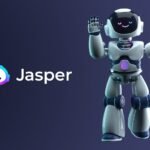In a groundbreaking move, two new radio stations in Nashville are revolutionizing the airwaves by harnessing the power of artificial intelligence (AI) to deliver highly tailored music experiences to their audiences. These two radio stations, aptly named “The Hill” and “Nashville Songwriter Radio,” are redefining the way we consume music.
The Stations
The Hill: Designed for high school students, “The Hill” spans multiple genres, offering a diverse musical palette. From indie rock to hip-hop, this station caters to the eclectic tastes of young listeners. Whether you’re studying, hanging out with friends, or simply unwinding, “The Hill” radio stations have you covered.
Nashville Songwriter Radio: This station celebrates the heart and soul of Music City – its talented singers and songwriters. By curating a playlist exclusively featuring songs from local artists, it shines a spotlight on the hidden gems of Nashville’s music scene. Whether you’re a country aficionado or a fan of heartfelt ballads, these radio stations deliver the essence of Nashville.
The AI Magic
Super Hi-Fi, a cutting-edge AI company, has partnered with Xperi and Cumulus Media to bring these stations to life. Here’s how it works:
Human Curators: Skilled humans meticulously select the ingredients for each station. They record song introductions, curate playlists, and infuse their expertise into the mix.
AI Selection: The AI steps in as the final chef. It takes the carefully curated ingredients and weaves them into a seamless musical experience. Think of it as a power tool that enhances human creativity rather than replacing it.
Why It Matters
Hyper-Specific Stations: These AI-powered radio stations cater to niche audiences that would never receive attention through a plain algorithm alone. Emerging artists and local talents now have a platform to shine.
No Job Losses: Contrary to fears about AI taking jobs, this collaboration speeds up tasks without eliminating them. Humans remain at the heart of the process, working alongside AI to create something extraordinary.
Industry Optimism
Belmont University music business professor Clyde Rolston sees this as a positive step for Nashville. “It’s great for artists who aren’t signed to big publishing companies,” he says. “Radio embracing technology is the next logical evolution.”
As Nashville’s musical landscape evolves, these AI-powered radio stations are harmonizing tradition with innovation. Tune in, and let the algorithms serenade your soul.
AI-Powered Radio Stations: Revolutionizing Broadcasting
In a groundbreaking leap for the audio industry, AI-powered radio stations are reshaping the way we experience radio content. Here’s what you need to know:
RadioGPT: The World’s First AI-Driven Radio Station:
Futuri, a media company based in Cleveland, Ohio, has launched RadioGPT, the world’s first AI-driven localized radio content solution.
How AI-Powered Radio Station Works?
RadioGPT scans social media platforms (Facebook, Twitter, Instagram) and over 250,000 other sources to identify trending topics in local markets.
It then employs GPT-3 technology to generate on-air scripts, which AI voices transform into compelling audio.
Radio stations can choose from various AI voices for single-hosted, duo-hosted, or trio-hosted shows.
The AI can even be trained to mimic existing radio personalities’ voices.
Benefits of AI-Powered Radio Stations
Localization: RadioGPT provides hyper-localized content, enhancing the listener experience.
Resource Efficiency: Broadcasters can focus on unique content while AI handles localization.
Real-Time Content: RadioGPT generates social posts, blogs, and digital content related to on-air broadcasts.
Partnerships: Alpha Media (U.S.) and Rogers Sports & Media (Canada) are among RadioGPT’s partners.
Fubo Radio:
Fubo Radio, a collaboration with Super Hi-Fi, offers 10 AI-powered radio stations as part of its free, ad-supported television (FAST) channels.
These stations curate radio experiences using AI, catering to diverse tastes.
Future Possibilities:
AI will continue to evolve in radio, impacting:
Music Selection: AI-driven playlists and recommendations.
Live Shows: Real-time adaptation during broadcasts.
Sound Design: Enhanced audio production.
Collaboration: Human-AI creative partnerships.
With AI at the helm, these radio stations are entering an exciting era of innovation, personalization, and dynamic content delivery.
What is the future of AI in music?
The future of AI in music holds immense promise, blending technological advancements with artistic expression. Here are some exciting possibilities:
Personalized Music Creation:
AI algorithms will assist musicians in composing personalized music. Imagine an AI co-writer that tailors melodies, harmonies, and lyrics to an artist’s unique style.
Customizable music generation tools will empower creators to craft soundscapes that resonate with their emotions and experiences.
Genre Fusion and Exploration:
AI transcends genre boundaries. It can blend classical with electronic, jazz with hip-hop, and folk with futuristic sounds.
Artists will experiment with hybrid genres, creating fresh sonic landscapes.
Virtual Collaborators and Bandmates:
Virtual musicians powered by AI will jam alongside human artists. Picture a guitarist improvising with an AI-generated bassline or a drummer responding to algorithmic cues.
Live performances will become dynamic collaborations between humans and machines.
Reviving Lost Styles and Instruments:
AI can recreate historical instruments or lost musical traditions. It’s like unearthing forgotten melodies from the past.
Artists will explore ancient scales, folk tunes, and cultural sounds.
Real-Time Remixing and Adaptation:
AI will remix songs on the fly during live performances. Imagine a DJ seamlessly blending tracks, adjusting tempo, and adding effects.
Songs will adapt to the audience’s mood and energy.
Emotional Music Generation:
AI will learn to evoke specific emotions through music. Want a melancholic ballad or an uplifting anthem? The AI will compose accordingly.
Emotional intelligence algorithms will infuse music with sentiment.
Assisting Songwriters and Lyricists:
AI-generated lyrics will serve as starting points for songwriters. They won’t replace human creativity but will ignite ideas.
Sentiment analysis tools will fine-tune storytelling.
Interactive Music Experiences:
AI-powered concerts will adapt based on audience reactions. The music will evolve in real time, responding to applause, movement, and emotions.
Immersive installations will blend music, visuals, and AI interactivity.
Enhanced Sound Design and Mixing:
AI will automate sound engineering tasks, allowing producers to focus on creativity.
Sonic textures, spatial effects, and immersive audio will flourish.
Ethical Challenges and Copyright:
As AI generates music, questions about authorship, ownership, and copyright will arise.
Balancing creativity with ethical use of AI-generated content will be crucial.
How does AI enhance human creativity in music?
AI and human creativity in music – a fascinating interplay that merges the analytical precision of algorithms with the boundless imagination of artists.
Infinite Inspiration:
AI algorithms can analyze vast amounts of existing music, identifying patterns, harmonies, and melodic structures. By doing so, they provide a treasure trove of inspiration for composers and songwriters.
Imagine an AI sifting through centuries of classical compositions, jazz improvisations, and contemporary hits. It can then generate novel chord progressions, melodies, and rhythms, sparking fresh ideas for human creators.
Collaborative Composition:
AI tools allow musicians to collaborate with an invisible partner – one that doesn’t tire, sleep, or experience writer’s block.
For instance, an artist might input a few chords, and the AI can suggest complementary melodies or harmonies. It’s like having a musical co-pilot who whispers, “What about this next?”
Genre Fusion and Experimentation:
AI transcends genre boundaries. It can blend elements from different styles, creating hybrid compositions that defy categorization.
Picture an AI-generated fusion of classical strings with electronic beats or a jazz saxophone riff layered over a hip-hop groove. These experiments push artistic boundaries.
Personalized Music Recommendations:
Streaming platforms use AI algorithms to curate playlists based on individual preferences. This personalization ensures listeners discover new tracks aligned with their tastes.
By introducing listeners to lesser-known artists or niche genres, AI expands musical horizons.
Sound Design and Production:
AI assists in sound engineering, automating tasks like noise reduction, equalization, and mastering.
Producers can focus on the creative aspects – sculpting unique sounds, experimenting with effects, and shaping sonic landscapes.
Lyric Generation and Sentiment Analysis:
AI-generated lyrics can serve as starting points for songwriters. They might not replace the poetic depth of human-written lyrics, but they ignite the writing process.
Sentiment analysis tools gauge emotional nuances in lyrics, helping artists fine-tune their storytelling.
Live Performances and Improvisation:
AI-powered instruments and virtual bandmates are becoming a reality. Imagine a guitarist jamming with an AI-generated bassline or a drummer responding to algorithmic cues.
These collaborations add unpredictability and excitement to live shows.
Reviving Lost Styles:
AI can recreate the sound of historical instruments or lost musical traditions. It’s like unearthing forgotten melodies from the past.
For instance, an AI-generated Baroque harpsichord piece could transport us to a bygone era.
Sampling and Remix Culture:
AI assists DJs and producers by suggesting samples, remixing tracks, and transforming existing music.
Remixing becomes a playground where AI algorithms play alongside human creativity.
Embracing Constraints:
Some AI systems intentionally limit themselves to specific rules or styles. These constraints force creativity within defined boundaries.
Artists can explore new avenues while adhering to these self-imposed rules.
AI amplifies human creativity by providing tools, inspiration, and novel perspectives. It’s not about replacing artists; it’s about empowering them to reach new heights.
Naorem Mohen is the Editor of Signpost News. Explore his views and opinion on X: @laimacha.

